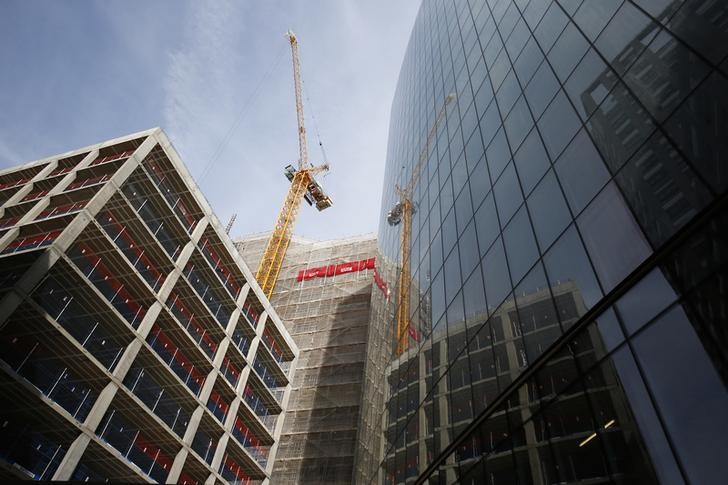By Andy Bruce
LONDON (Reuters) - Britain's construction industry largely recovered in August from a downturn that started just before June's vote to leave the European Union, according to a survey on Friday that added to signs the economy is stabilising.
The latest Markit/CIPS UK Construction Purchasing Managers' Index (PMI) rose to 49.2 from 45.9 in July, beating all forecasts in a Reuters poll but remaining below the 50 mark dividing growth and contraction.
The construction survey follows a surprisingly upbeat manufacturing PMI on Thursday, which could prompt the Bank of England to rethink the need to cut interest rates again this year.
Sterling rose to a one-month high against the euro after the construction data and British shares also rallied.
"The near-stabilisation in construction activity in August ... adds to the mounting evidence that the economy has so far held up pretty well following June's Brexit vote," economist Howard Archer from IHS Global Insight said.
Overall construction activity -- which accounts for about 6 percent of the economy -- nevertheless declined for a third straight month.
"There were still widespread reports that Brexit uncertainty had dampened demand and slowed progress on planned developments, especially in relation to large projects," said Tim Moore, economist at survey compiler Markit.
Economists will also be concerned by the strength of inflation pressures now facing builders.
Prices paid by construction firms for raw materials shot up at the fastest pace in just over five years, fuelled by the pound's plunge since the vote to leave the EU.
"Demand likely will crumble when construction companies pass on these higher costs to customers," said Samuel Tombs, economist at consultancy Pantheon Macroeconomics.
Manufacturers also reported an unusually big rise in input prices, which are likely to feed into prices on the high street next year, potentially crimping consumer demand -- a key pillar of economic growth.

A separate survey from YouGov and the Centre for Economics and Business Research showed British business confidence staged a partial recovery from the plunge that followed the EU vote, although firms remained downbeat about the economic outlook.